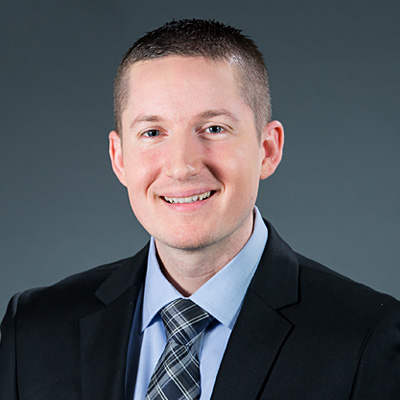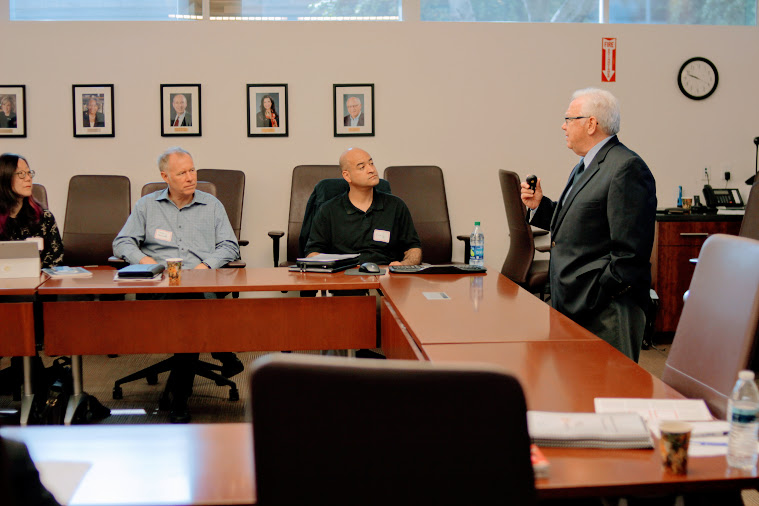Local Advisory Committee (LAC) Member Highlight: Chris Hubbard
 Christopher Hubbard is the Senior Program Officer of Housing and Economic Development at the California Community Foundation (CCF). He directs the coordination of all Los Angeles housing projects funded by or in cooperation with CCF to produce permanent, high-quality housing. He is also responsible for developing more efficient investment pathways in the City's public housing sector.
Christopher Hubbard is the Senior Program Officer of Housing and Economic Development at the California Community Foundation (CCF). He directs the coordination of all Los Angeles housing projects funded by or in cooperation with CCF to produce permanent, high-quality housing. He is also responsible for developing more efficient investment pathways in the City's public housing sector.
1. Why were you interested in joining the LAC of LA LISC?
Los Angeles is where I grew up and I wanted to get more involved with groups engaged in efforts to improve our community. Every year, I see housing here become more unaffordable and incomes aren’t keeping up for many residents. This is not just an LA issue and I appreciate the organization has a depth of knowledge and presence in LA, but also has a network of offices working across the nation to inform its work in affordable housing and economic opportunity.
2. What is the best part of your job (either your organization or as an LAC member)?
I work with grants and loans related primarily to housing, homelessness, and small business lending. I play a small role in terms of the total amount of financing needed, usually providing some level of higher risk capital at the front end of a development, but I get to see tangible results. Attending grand openings for buildings or facilities that will last for decades, seeing people move into a place that can provide a permanent and stable home for them and their family, and hearing the stories of entrepreneurs that became job creators instead of job seekers are the highlights of my work.
LISC is doing amazing work in terms of financing affordable and supportive housing, helping families increase incomes and decrease expenses with its financial opportunity centers, and playing a role in financing for small businesses. As an LAC member, I am not directly involved in the day to day activities, but I am happy to see the results of the great work the staff at the organization is accomplishing.

Asset Management Training at the California Community Foundation April 2019
3. How did you first get involved in the affordable housing/economic development sector?
I got my real estate license in 2004, in time to see the real estate bubble grow and the proliferation of no documentation loans and adjustable rate mortgages. I unfortunately also saw family and friends lose their homes when the loans adjusted. I started working at a company to help people avoid foreclosure but at the time there wasn’t much I could do when negotiating with banks to help them keep their homes. I later started working at a land trust that was focused on permanent affordability by retaining ownership of the land and leasing out the property to affordable housing providers. I then got into affordable housing lending, primarily in acquisition and predevelopment loans. This was done one development at a time. In recent years, I have had the opportunity to advise and invest in top loss positions in loan funds that are helping finance thousands of units.
4. What motivates you to work hard?
Growing up, I saw my mom struggle to find decent work as a single mom and even when she remarried and had two incomes, finances were tight. We moved around a lot, I went to six different schools in about as many years. We went bankrupt, housing wasn’t stable, and some of the apartments we lived in had muggings and my parents had their cars broken into many times. But we always had family to help out and one day, we got into housing that was more stable, I got to attend the same school for four years, my parents had more time to focus on their careers, and my step-father even started his own business. I truly believe one of the most important things people can have is housing that is stable and affordable for their income.
Now that I have young kids, they know I work in a field that builds housing for people who need it. Even I can sometimes get a bit desensitized to homelessness but every single time my son sees someone on the street, he tells me he wants to help me build a house for them and that motivates me to see if I can do more.
5. If you could choose to do anything for a day, what would it be?
There are so many things I would want to do but one would be to join a team of underwater archaeologists as they explore a ship wreck. I got into SCUBA diving a while back and it is an amazing experience - the feeling of weightlessness underwater, the quiet of it all and seeing amazing sea creatures. A ship wreck that is a piece of history and a bit of a mystery to solve – what type of cargo was on the ship, where was it going, who built it?
6. Who is your hero?
My grandma and grandpa. They had strong morals and values. They owned an apartment building and for decades kept the rents low so that low-income families could afford to live there. They didn’t work with rental assistance programs but just decided to charge their tenants less. By the time they sold the building, the rents were less than 50% of market rents. They lived in the building, managed it themselves, and still had a reasonable amount of money to live on.
7. What are you most looking forward to in 2019?
I think 2019 will be a year that we see significant investments in different ways to streamline the affordable housing building process. From different building methods to changes in the way buildings are permitted and approved. This work has been happening for a while but I think 2019 is really a year for it. All the activity at the local and state level is incredibly encouraging.
LA LISC is proud of its long-standing relationship with California Community Foundation, one that continues to deliver positive, systemic change for communities in need. We are grateful of your work in our Local Advisory Committee and are excited to continue investment in our neighborhoods to ensure a better quality of life, increased productivity, and sustained well-being for all Los Angeles residents.
About California Community Foundation
Since 1915, California Community Foundation has been committed to finding long-term solutions to the many socioeconomic issues affecting Los Angeles County. As of 2000, they are involved with securing $200 million grants to ensure a more equitable playing field for Los Angeles residents. Currently, they boast one of the largest public works portfolios in Los Angeles, performing coordinated outreach in quality healthcare, education, and housing.